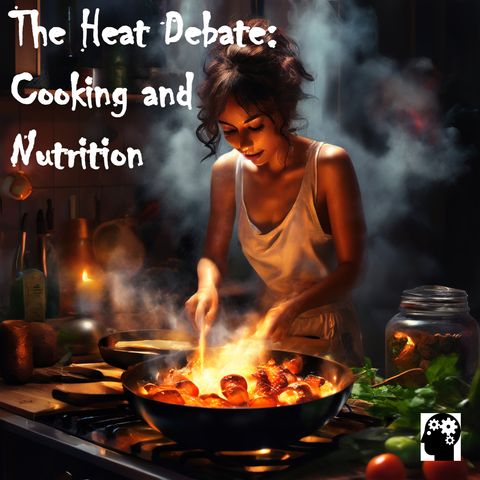
Contacts
Info
To Cook or Not to Cook: Heating Foods and What It Means The decision to cook or not to cook food has significant implications for nutrition, flavor, and health. Cooking...
show moreThe decision to cook or not to cook food has significant implications for nutrition, flavor, and health. Cooking is a process that transforms raw ingredients into meals through the application of heat, which can enhance flavor, make food safer to eat, and improve digestibility. However, it can also lead to the loss of certain nutrients, prompting some people to consider raw diets.
When food is cooked, heat breaks down complex molecules, making it easier for our bodies to absorb nutrients. For instance, cooking tomatoes increases the availability of lycopene, an antioxidant linked to numerous health benefits.
Similarly, cooking eggs makes protein more digestible and safer by eliminating harmful bacteria like Salmonella. These benefits highlight why cooking has been a fundamental practice in human history, contributing to our evolution and dietary diversity.
On the other hand, some nutrients are sensitive to heat and can be significantly reduced during cooking. Water-soluble vitamins like vitamin C and B vitamins can leach out of vegetables when boiled.
Cooking at high temperatures can also produce harmful compounds, such as acrylamide in fried foods, which has been associated with an increased risk of cancer. These concerns have led to a growing interest in raw diets, which proponents claim preserve nutrient integrity and promote better health.
Balancing cooked and raw foods can provide the best of both worlds. Incorporating raw foods into your diet can ensure you receive essential nutrients that might be diminished through cooking.
Meanwhile, cooking certain foods can enhance their nutritional value and safety. Understanding the effects of cooking on different types of food allows for more informed dietary choices that support overall health and well-being.
We hope this topic has been useful to you. Share it if you think it can help other people. Be happy.
We trust this information has provided clarity. Feel free to share it if you believe others might benefit. Stay joyful.
We aim to make this topic insightful for you. If you found it helpful, please share it with others. Stay positive.
Discover a world of culinary knowledge with our curated selection of Amazon books on cooking and nutrition.
Click the link and start exploring these valuable resources today!

To Cook or Not to Cook: Heating Foods and What It Means The decision to cook or not to cook food has significant implications for nutrition, flavor, and health. Cooking...
show moreThe decision to cook or not to cook food has significant implications for nutrition, flavor, and health. Cooking is a process that transforms raw ingredients into meals through the application of heat, which can enhance flavor, make food safer to eat, and improve digestibility. However, it can also lead to the loss of certain nutrients, prompting some people to consider raw diets.
When food is cooked, heat breaks down complex molecules, making it easier for our bodies to absorb nutrients. For instance, cooking tomatoes increases the availability of lycopene, an antioxidant linked to numerous health benefits.
Similarly, cooking eggs makes protein more digestible and safer by eliminating harmful bacteria like Salmonella. These benefits highlight why cooking has been a fundamental practice in human history, contributing to our evolution and dietary diversity.
On the other hand, some nutrients are sensitive to heat and can be significantly reduced during cooking. Water-soluble vitamins like vitamin C and B vitamins can leach out of vegetables when boiled.
Cooking at high temperatures can also produce harmful compounds, such as acrylamide in fried foods, which has been associated with an increased risk of cancer. These concerns have led to a growing interest in raw diets, which proponents claim preserve nutrient integrity and promote better health.
Balancing cooked and raw foods can provide the best of both worlds. Incorporating raw foods into your diet can ensure you receive essential nutrients that might be diminished through cooking.
Meanwhile, cooking certain foods can enhance their nutritional value and safety. Understanding the effects of cooking on different types of food allows for more informed dietary choices that support overall health and well-being.
We hope this topic has been useful to you. Share it if you think it can help other people. Be happy.
We trust this information has provided clarity. Feel free to share it if you believe others might benefit. Stay joyful.
We aim to make this topic insightful for you. If you found it helpful, please share it with others. Stay positive.
Discover a world of culinary knowledge with our curated selection of Amazon books on cooking and nutrition.
Click the link and start exploring these valuable resources today!
Information
| Author | Find Out How! |
| Organization | Find Out How! |
| Categories | Nutrition , Food , Health & Fitness |
| Website | - |
| apacktosend@hotmail.com |
Copyright 2024 - Spreaker Inc. an iHeartMedia Company
